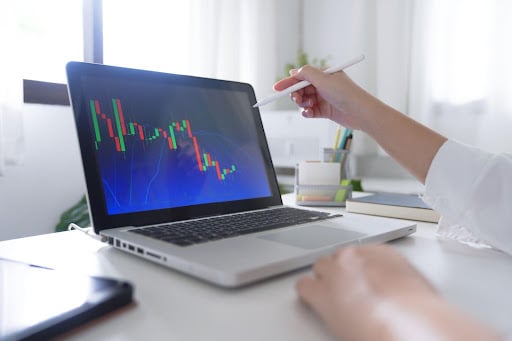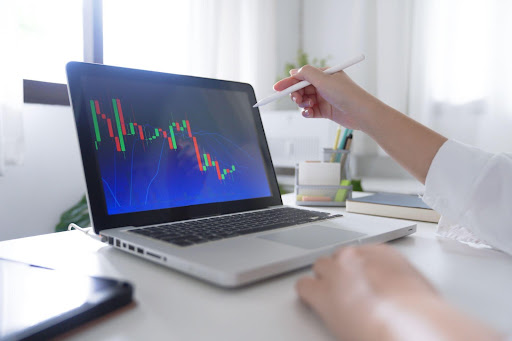
Imagine a global marketplace where the fate of nations isn’t decided by military might, but by the ebb and flow of invisible forces. This is the realm of the foreign exchange market, or forex market for short. Here, currencies from all corners of the world constantly battle for dominance, with trillions of dollars changing hands every single day. But how does this complex system work, and more importantly, can everyday people like you and me become “currency crusaders” and navigate its challenges to reap potential rewards?
Beyond the tourist exchange: unveiling the hidden engine of global trade
While exchanging money at the airport might be the most familiar experience with currencies, the forex market plays a far more critical role in the global economy. It acts as the invisible engine that fuels international trade. When a company in Germany imports coffee beans from Brazil, they need to exchange Euros (EUR) for Brazilian Reals (BRL) to pay for the purchase. This transaction, and countless others like it, takes place in the vast ecosystem of the forex market. Currencies are traded in pairs, with their value expressed relative to one another. For instance, an exchange rate of USD/JPY (US Dollar vs. Japanese Yen) of 110 tells you that you need 110 Yen to buy 1 US Dollar.
The diverse cast of the Forex market: who are the currency crusaders?
The forex market is a bustling bazaar, teeming with a diverse cast of characters who all play a role in influencing exchange rates. Here are some key players:
- Central banks: these governmental institutions act as the “monetary authorities” for their countries. They influence exchange rates by setting interest rates, essentially dictating the cost of borrowing money in their respective currencies.
- Commercial banks: these are the financial institutions that facilitate currency exchange for businesses and individuals involved in international trade. Imagine them as the “money changers” of the modern world.
- Investment banks: large financial institutions that trade currencies on behalf of their clients and for their own profit. They act as the “whales” of the forex market, with their large transactions influencing exchange rates.
- Retail traders: individuals like you and me who participate in the forex market through online platforms like MTrading. We are the “citizen crusaders” attempting to navigate the complexities of the market.
The allure of the Forex frontier: why people trade currencies
The reasons for participating in the forex market are as diverse as its players. Businesses use it to hedge against currency fluctuations when conducting international transactions. Investment banks and hedge funds seek to profit from short-term movements in exchange rates. But for retail traders, the forex market holds a unique appeal:
- high liquidity: currencies are constantly being traded, making it easier to enter and exit positions compared to other investment options.
- 24-hour market: unlike stock exchanges, the forex market operates 24/5, allowing for greater flexibility and the ability to react to global events as they unfold.
- leverage: online platforms like MTrading offer leverage, which allows traders to control a larger position than their actual capital. However, as we’ll explore later, leverage is a double-edged sword.
- understanding the battle lines: factors that Move the Currency Markets
Several factors influence the value of a currency and, consequently, the forex market. These act as the forces that shape the battles between currencies. Here are a few key ones:
- interest rates: higher interest rates in a country tend to attract foreign investment, which can strengthen its currency. Think of it as a higher return on investment, making the currency more desirable.
- economic stability: a country’s economic health plays a significant role. A strong and stable economy instills confidence in its currency, leading to a stronger exchange rate.
- political events: political instability or uncertainty can weaken a country’s currency. Imagine the uncertainty caused by an upcoming election or a brewing trade war.
- supply and demand: just like any other market, the forex market is driven by the basic principle of supply and demand.
- a word of caution: the Perils of the Forex Frontier
While the high liquidity and leverage offered by the forex market can be enticing, it’s crucial to understand the inherent risks involved. The forex market is a volatile battleground, with exchange rates fluctuating rapidly. A miscalculated move could lead to significant losses if you’re not careful. Leverage, while a potential tool for amplifying gains, can also amplify losses.
Beyond the basics: strategies for currency crusaders
While the core principles of forex trading are relatively straightforward, experienced traders employ sophisticated strategies and analytical tools to navigate the complexities of the market. Here are some additional aspects to consider:
Technical analysis vs. fundamental analysis:
Technical analysis focuses on historical price charts and technical indicators like moving averages and relative strength indexes (RSI) to identify potential trading signals. Fundamental analysis, on the other hand, delves into economic data, interest rates, political events, and global news that might influence exchange rates. This is akin to analyzing the economic and political landscape surrounding each currency to understand its underlying strength.
Trading strategies: there are numerous forex trading strategies, each with its own set of rules and risk parameters. Some popular strategies include:
Trend trading: this strategy involves identifying and capitalizing on established trends in the market. Imagine riding a wave of a currency’s upward or downward momentum.
Carry trade: this strategy involves borrowing a low-interest-rate currency and investing it in a high-interest-rate currency, pocketing the difference. Think of it as exploiting a financial arbitrage opportunity in the forex market.
The role of technology: how online platforms empower currency crusaders
The rise of online trading platforms has democratized access to the forex market. Platforms like MTrading offer user-friendly interfaces, real-time market data, and advanced charting tools that empower individuals to participate in this dynamic marketplace. Imagine having a real-time war room at your fingertips, displaying currency movements, economic data, and analytical tools to guide your trading decisions. However, it’s important to choose a reputable broker that is regulated by financial authorities and offers secure transaction processing. After all, you wouldn’t want to enter a complex battleground without proper equipment and security measures.
The final word: Forex trading – a journey of learning and growth
The forex market is a complex and ever-changing ecosystem, offering both challenges and rewards for aspiring currency crusaders. It’s a dynamic battlefield where economic forces, political events, and investor sentiment constantly clash. But with proper education, a well-defined strategy, and a healthy dose of risk management, individuals can potentially navigate this market and reap the benefits of successful currency trades. Remember, the forex market is not a get-rich-quick scheme. So, if you’re an adventurous individual with a thirst for knowledge and a desire to test your skills in the global financial arena, the forex market might just be the frontier for you. Just remember, approach it with respect, caution, and a well-equipped arsenal of knowledge and strategies.
Interesting Related Article: “Maximize Profits with Top Forex Robot“









